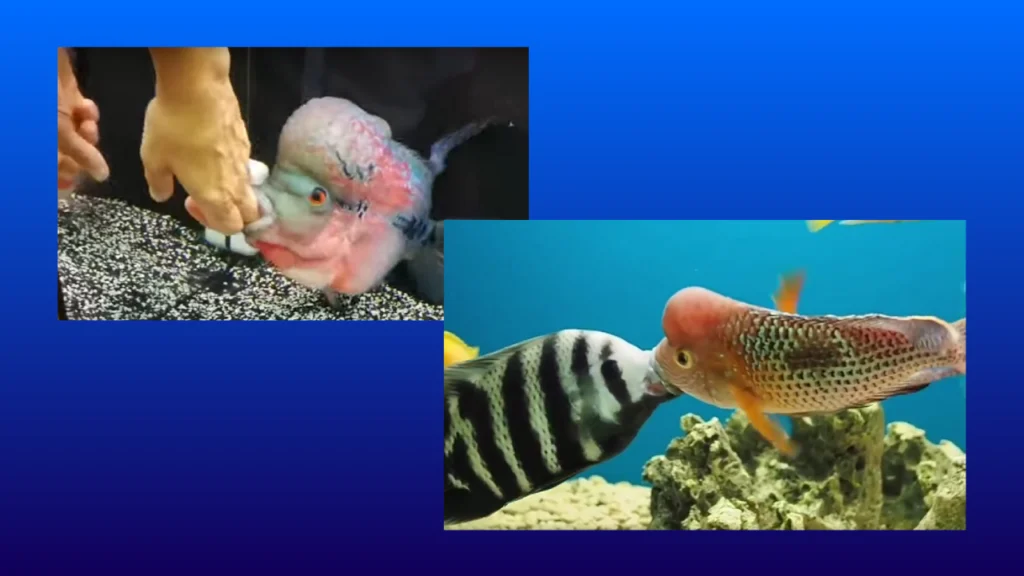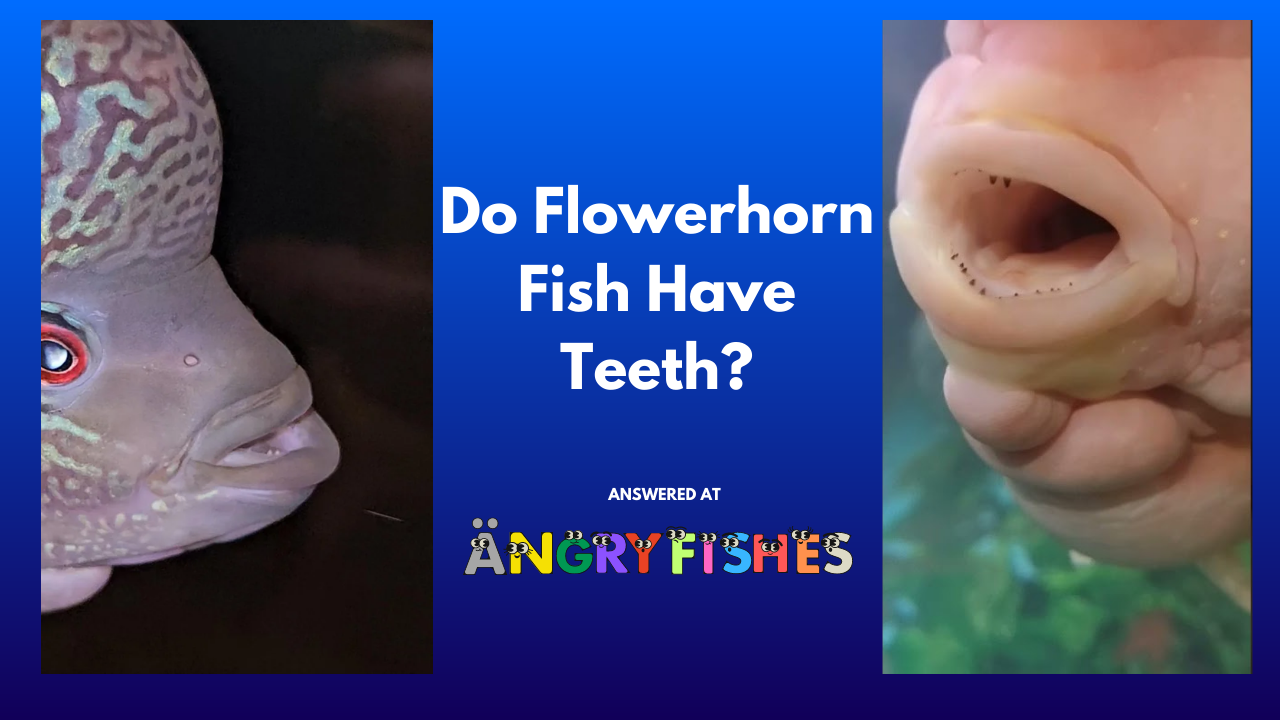Did you ever think of your aquarium mate, the angry one who ever had teeth? do flowerhorn fish have teeth? Then read below the complete details given to you
Introduction:
Welcome to the exciting world of aquariums, where underwater wonders come to life right in front of our eyes. The Flowerhorn cichlid fish stands out among the many interesting fish that live in these aquatic territories. But here’s a question that often comes up: do Flowerhorn fish, those beautiful water companions, really have teeth? Today, we’ll go on an exploration to find out the truth about Flowerhorn fish teeth and answer this mystery.
Do Flowerhorn Fish Have Teeth?
Yes, Flowerhorn fish do have teeth, and they are naturally very sharp. It might seem like Flowerhorns are similar to piranhas, which have powerful teeth for attacking prey. However, Flowerhorns are not like piranhas. While they do have sharp teeth, they’re not as strong as piranha teeth.
Sometimes, you can even feel these teeth if you touch the inside of their mouths. These teeth start growing just 2 to 3 days after they hatch. While Flowerhorn breeding, They often engage in mouth-to-mouth interactions with each other, which can potentially lead to tooth damage.
Because Flowerhorns belong to the cichlid family, they naturally have some aggression and territorial behavior. If you keep 2 or more Flowerhorns in the same tank, they might end up hurting each other, sometimes even losing one fish’s life (eventually the price of the flowerhorn or other fish, time, happiness, and the aquarium environment are wasted). You should take care of this and should not place 2 or more flowerhorns in one single tank.

When you’re taking care of your Flowerhorn tank or aquarium, it’s important to be extra careful while handling them. These fish can bite your hand, and it might hurt you. If the Flowerhorn is small and young, the bite might not hurt much. However, if your Flowerhorn is big, the bite can be quite strong and might cause more damage to your hand. So, always be cautious when you’re dealing with your Flowerhorn fish.
What can damage flowerhorn fish teeth?
This is not relative Do Flowerhorn fish have teeth? but yet, it is my responsibility to guide you to take care of your flowerhorn fish teeth. The Flowerhorn fish teeth may not be as fierce as piranha teeth, but they still require proper care to avoid damage. While Flowerhorns are robust and resilient, certain factors can potentially harm their teeth and overall well-being. Here are some things to watch out for:
Tankmates and Aggression
Flowerhorns are known for their territorial nature, especially when housed with other fish of similar size. These aggressive tendencies often lead to fights, which can result in chipped or broken teeth ultimately affecting their ability to eat and stay healthy.
Tank Decorations: A Hidden Threat
Decorations definitely make a tank look attractive, but not all of them are safe. Sharp rocks, rough-edged ornaments, or jagged driftwood can injure your Flowerhorn if it brushes up against them or tries to bite them. Even small or finely crushed stones can do more harm than good, causing unnecessary dental damage.
Heater & Filter Systems
While heaters and filters are essential for a healthy aquarium environment, they’re not without risk. Flowerhorns may nip at the heater or filter intake, which can lead to worn or broken teeth over time.
Submerged Lights & Wires
Flowerhorns are naturally curious and may explore everything in the tank including wires from submerged lights or equipment. Chewing on these can cause them to ingest pieces of silicon or rubber, leading to dental injuries or more serious internal health problems.
It’s crucial to create a safe and suitable environment for your Flowerhorn fish. When decorating their tank, opt for smooth and rounded objects that won’t harm their teeth. Regularly inspect the tank for any sharp or potentially harmful items. Additionally, ensure that the heater and filtration system are securely installed to prevent any accidental damage to your fish’s teeth. Moreover, safeguard submerged lights and wiring to prevent any mishaps that could compromise your Flowerhorn’s Kok, teeth, and overall health.
It is also noted that each variety of flowerhorn has its own aggressive level. Read this for a better understanding of Types of flowerhorn
By taking these precautions and being mindful of potential risks, you can help maintain the health and well-being of your Flowerhorn’s teeth, ensuring that they can continue to enjoy their aquatic habitat to the fullest.
Summary:
So, now you know the answer to your question “Do flowerhorn fish have teeth?” Flowerhorn fish do have teeth! We’re glad you stuck around to learn all about them.
A big thank you for choosing us and reading this far. If you’re interested in taking care of Flowerhorns and Betta fish, our website, AngryFishes.com, has more helpful stuff for you.
Okay, time to say bye for now. Take care and see you again soon!

